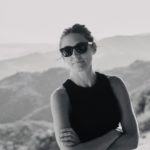Welcome to season two of A Little Green, a podcast from Avocado Green Brands. This season, we invited guests to share stories about how the outdoors have impacted them in positive, life-changing ways. Listen to all eight episodes here.
In episode seven, we hear from Javier Zamora, a Mexican immigrant who found success, joy, and a sustainable way of living when hard times led him back to his roots — to organic farming.
Here is his story.
Christina Thompson: The first time we got in touch with Javier Zamora, the sun had barely risen, but he had already been up for hours working on his farm.
Javier Zamora: What is it? It’s just before 7 am. My mornings start just around 4 am, and our workforce goes out, out on the field around 6 am.
Christina Thompson: He offered to show us around the next time we were on California’s Central Coast.
Javier Zamora: It’s an incredible feeling to have someone come in and tour the farm, walk around with you, and being able to pick a strawberry or get a pod of green beans and eat it, or a leaf of kale.
Christina Thompson: Speaking with Javier feels like a conversation with an old friend. His warmth comes through so clearly when you’re listening to him. He told us a story that took him through so many ups and downs, twists and turns, losses and uncertainties, and ultimately, to joy.
Javier Zamora: My name is Javier Zamora, and I’m in Watsonville, California, on the beautiful Central Coast, which is between San Francisco and L.A. I was 20 years old when I came to the L.A area. This is during the eighties, mid-eighties. I was born and raised in Michoacán, Mexico, from farming parents.
I’m number 10 of 12 siblings, so you can imagine how difficult and challenging life was. My father worked for an American company — this is 50 years ago — that grew pickling cucumbers, watermelons, and cantaloupes to be shipped to America. Besides that, he had a little piece of land behind our house where we actually farmed some things for ourselves.
And my mom, she loved when I was growing up, and I was planting little radishes and carrots and things around the house, but life, it was really, really hard.
My father would come back from work, and I would just hold his foot. I would hold onto his leg, and I honestly still remember how he smelled, like, from coming back and working in the fields. So that’s always in my head, and it’s a beautiful thing, but I think it’s also a little bit painful on how difficult life was back then.
I was probably six years old when I was already working. I think by seven, I was already probably picking some berries, and we had like a lime — lemon grove nearby where we used to go and pick the lemons that had fallen off the tree, and you put them in boxes, and they will pay you by how many boxes you made.
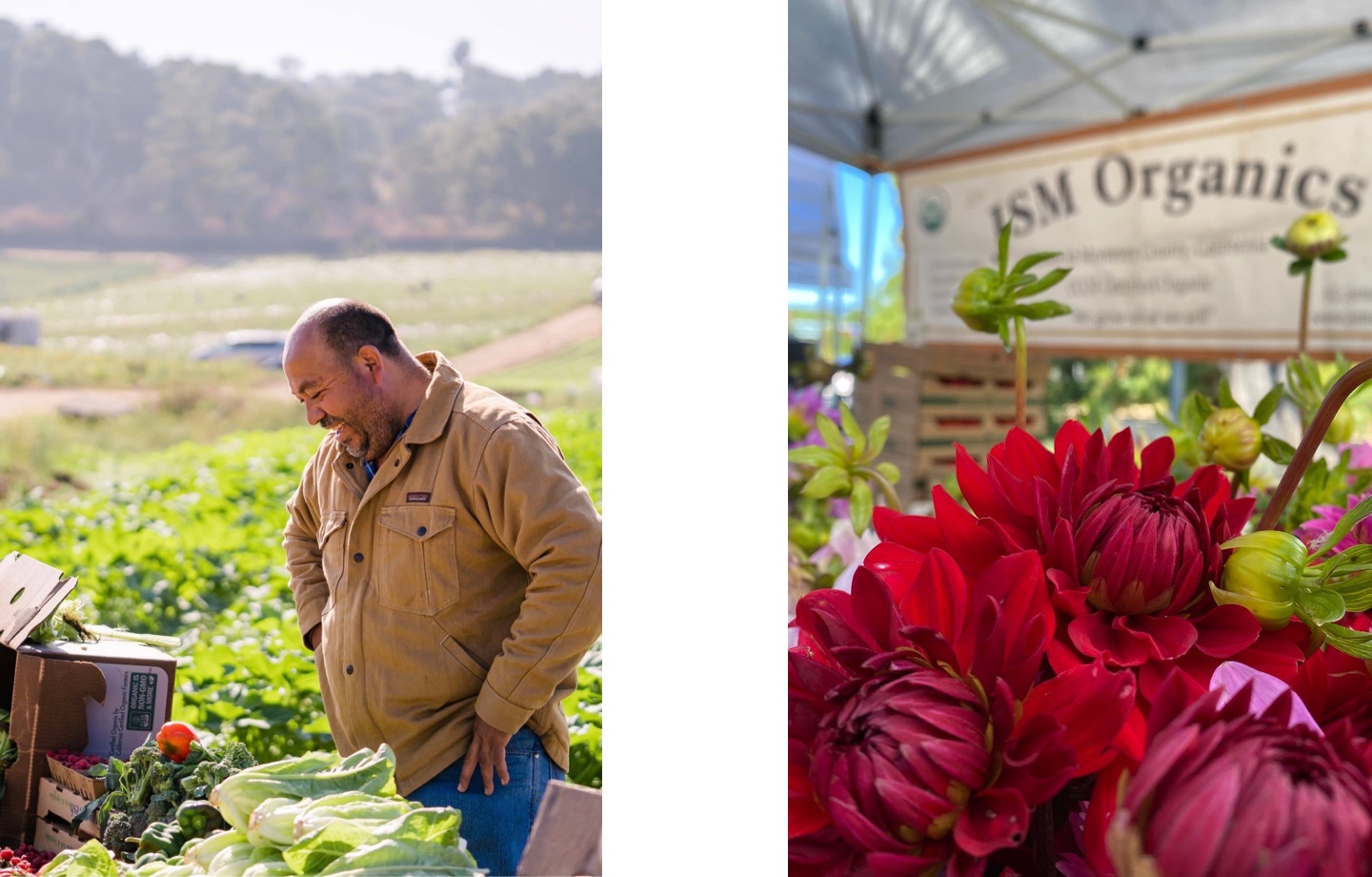
Tune in to Episode 1: Sailing The World to Save a Culture
All I knew was that we needed to go out and do something so we can bring a few pesos to my mom so we could be fed. Back then, it was a necessity; it was a way of living. You just needed to do it because there was nothing else to do, and you had expectations to go and do something that will be a benefit for the family and the community.
So I was 19 to 20 years old when I had to move to the United States looking for another opportunity in life. It was in the eighties — mid-eighties.
In my case, I crossed the Rio Grande through Texas, and then we got into a train and stopped in Arizona, and we lived there for some time until my siblings that were already in America decided to bring me to LA.
When I was in Mexico, they just didn’t want me to come. They didn’t want me to risk my life. It wasn’t like you just got a plane ticket and fly over to LA from Guadalajara. It wasn’t like that. It was just incredibly painful. I can only imagine what people go through these days.
Once you’re here, and the ones that we make it, in our head is to succeed and do good for you and your family, and, in some of our cases for our community.
Tune in to Episode 2: The Power of Hiking for Mental Health
I came to L.A. with my siblings so all these people are in one little, I don’t know, 300-square-feet, two-bedroom apartment. There was not much farming there, so I just did what most immigrants do when they come to a big city like that; it would just be like the restaurant industry.
I started doing the dishes. It was a huge place. I mean, I’d never seen so many dishes in my life. Different sizes and pots and pans, and waiters yelling and screaming. Then I went to an Italian restaurant that they pay me a little better, and then, I started doing the janitorial work for a nightclub. It was in Redondo Beach, right on PCH and Palos Verdes Boulevard. It was a high-end nightclub where performers that were touring the nation would stop by and play and perform there.
So, one night I would see Ray Charles, another night would be Keiko Matsui or Chick Corea. the Four Tops, the Stylistics, the Chi-Lites. Another night, it would be a comedian like Jim Carrey when he started. The guy from the Doobie Brothers, Michael McDonald…
I started doing the janitorial work for this nightclub, but the manager saw that I was always there, and I was fast, and did my thing, and they asked me to come in and start working during the evening as well as a bar boy, as a bar back, and that’s how I started. Five years later, actually, I was actually the bar manager.
Tune in to Episode 3: How Camping Saved a Marriage
It was just great because this place was a place for me to understand what life is in America. From there, things started going south at the nightclub, so I found a place with a golf course management company. I climbed that ladder to food and beverage director, and I did that really, really well. The BMW, the house, the trips, and all that until the housing crisis came along and things changed for me, and that’s when I started a whole different way of living.
You start losing things. You start not being able to pay your car, you’re not able to pay your bills. And then, you end up losing your house, and you end up having to go somewhere where it’s unknown what the future would be. It’s incredibly painful.
I went through depression, anxiety, and loss of hope, but I asked God for direction. I asked for guidance to do something else, and the way I did that was just figuring out what I could do to potentially bounce back to provide for my family again.
I started going to school. I got my GED, and then I went to college. I felt so good. I started looking at things in a different way. I thought I would do, like, some sort of landscaping design or something like that, because I was around the golfing company, and I saw, you know, how they maintain the greens, how they build them, the layout of the golf courses and all those things.
Once I started growing different plants and nursery stuff, I’m like, “Well, this is mostly plants and nursery. I want to grow food.” So I started looking into the Watsonville area. And I found a job with a fresh-cut flower grower, and that’s when I came to this area. It was nothing but organic. To me, it felt, like, so easy. I started, like, feeling, like, oh, this is it. This is very similar to what I used to do with my dad when we were little.
I started feeling comfortable again in a way that I had not felt for a long, long time. And that was being around plants, soil, that smell again of Earth, and see food grown, and seeing an opportunity to get out of my issues, and start a whole new life again. Farming was the way to go.
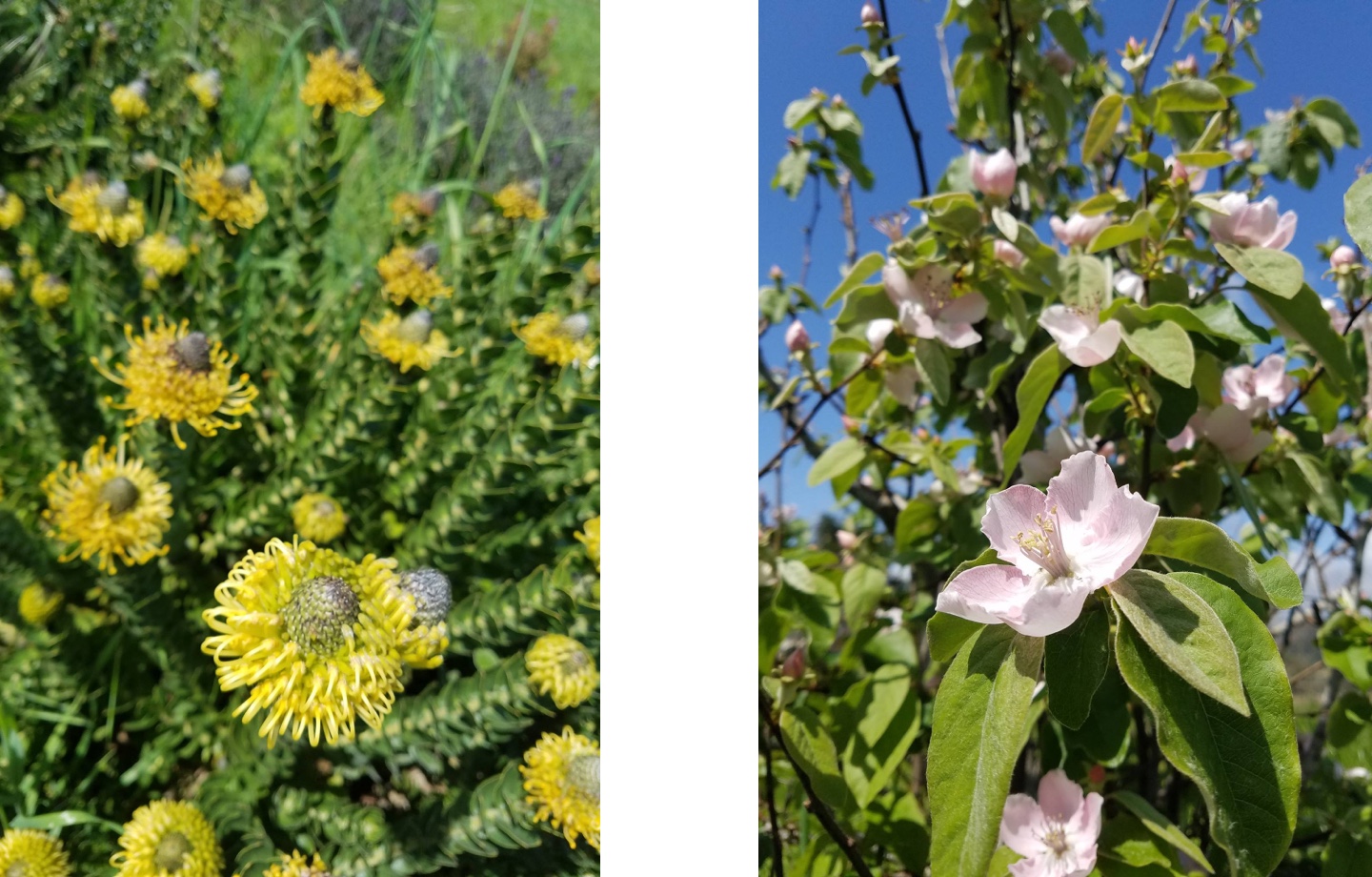
Tune in to Episode 4: How an Endangered Butterfly Inspired Hope and Healing
I started in 2012, so it’s been just 10 years. We started with a little acre and a half. We now farm over 120 acres. I started with me, my two daughters, and my wife on the weekends. And we now have a little over 40 employees. We feed thousands of people, and we generate lots of value for the community. It’s incredible.
The name of our farm is JSM Organics. We grow strawberries, raspberries, blackberries, a little bit of blueberries, lots of vegetables, and then, this is a place for lots of flowers: leucadendrons and proteas, to narcissus and sunflowers, dahlias, I mean, you name it. My farm is very diversified. It’s incredible.
To me, organic farming, it’s an answer to some of the issues that we’re facing with food these days. It’s a connection with Mother Nature, and it’s a way to find yourself. It changes your life. It changes the way you feel. It changes the way you see things, and you give Mother Nature the value that it deserves, and it makes you really, really happy.
We just, unfortunately, are not connected to what Mother Nature is, and we take things for granted a lot of times. My life has changed so much that now I am needed in a different way to make a change. If my issues have taken me to a place where I can now be a benefit for many others, that’s what I want to do.
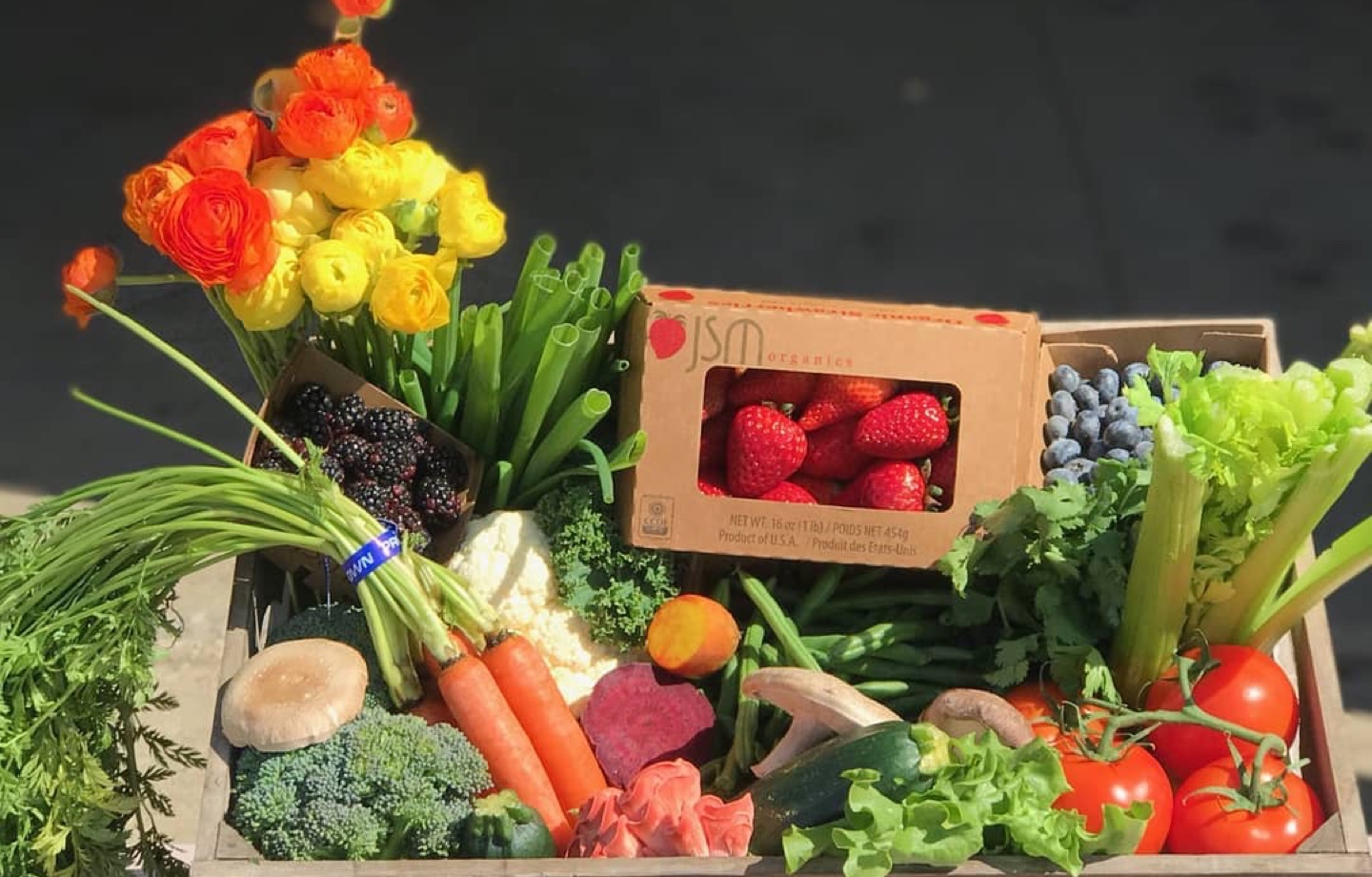
Tune in to Episode 5: Using Poetry as a Form of Climate Activism
I think I will feel really successful once I pay off my land and I don’t feel like I have to get up at four in the morning. There’s times that I feel really successful when I see farmers that I helped begin their operation and they were my employees, and they’re selling, and they’re succeeding, and they have employees.
That’s success. When I see a one-year-old tasting his first strawberry ever in life, that’s satisfaction. That’s incredible. When you see an elderly lady at the farmer’s market saying, “Javier, my father grew these strawberries, and I never felt this in my life again, and you brought that to me again.”
That’s success when you bring happiness to people.
I think my dad would be extremely happy. My mom would probably be right alongside with me. She loved plants. My mom would be extremely happy to see how happy I am and what I’m doing for the community. The connection between farming, especially organic farming: it’s a way of living for me, and it’s an answer to some of my personal issues and some of many people’s issues, not to mention the great benefits that it brings to me, to my family, and the beautiful community that supports me.
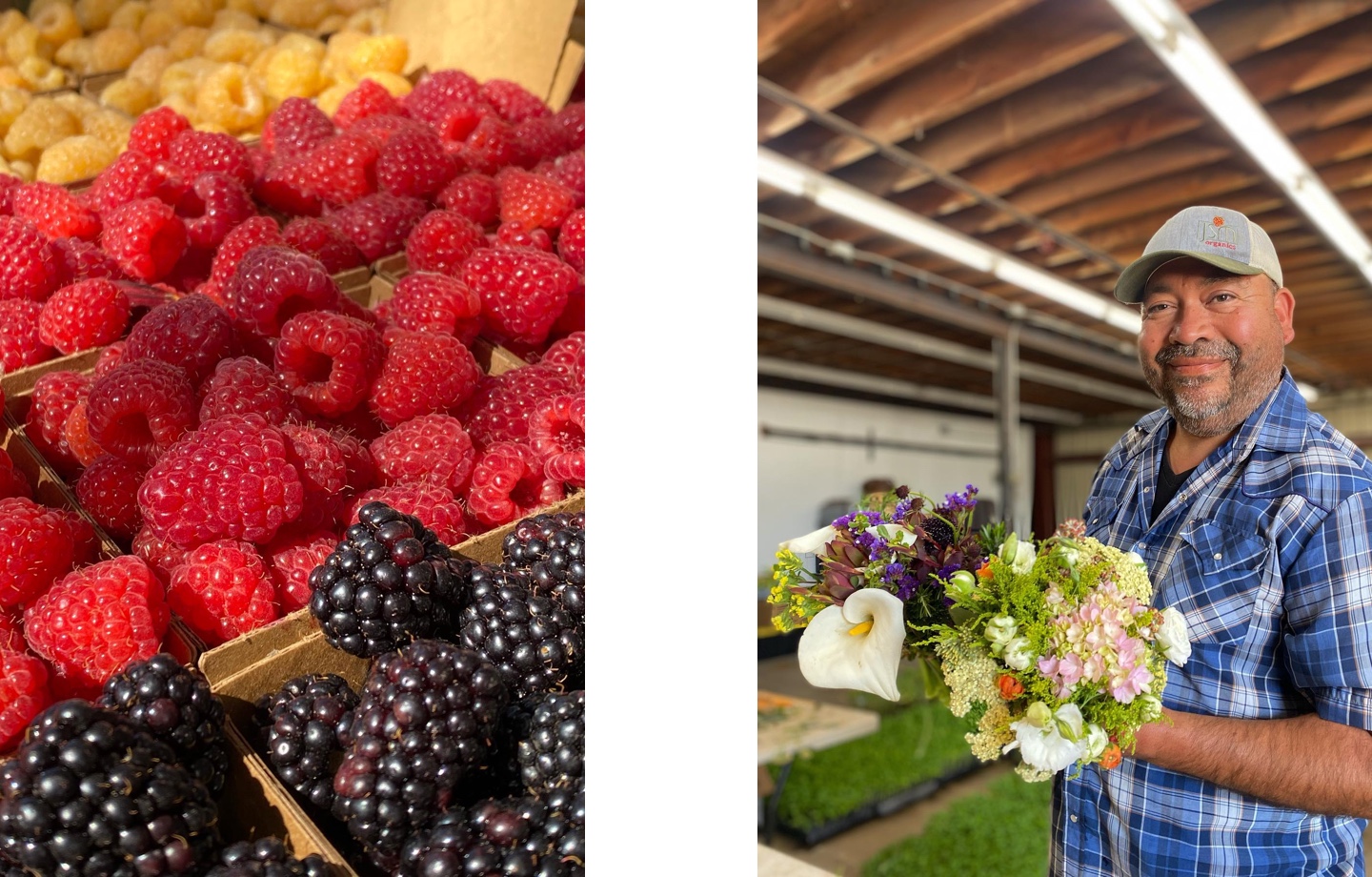
Tune in to Episode 6: Making Nature Accessible With Birding
Christina Thompson: If you find yourself on the Central Coast of California, just north of Monterey, go see Javier’s farm. It’s stunning, and I know for a fact that he’d be very proud to show you around. You can see more of his organic farming expertise and community work jsmorganics.com and in our show notes at alittlegreenpodcast.com.
A Little Green is an Avocado Green Brands podcast.

Shop Pillows
The Essential Organic Pillow Collection
Gentle, breathable, non-toxic support.





